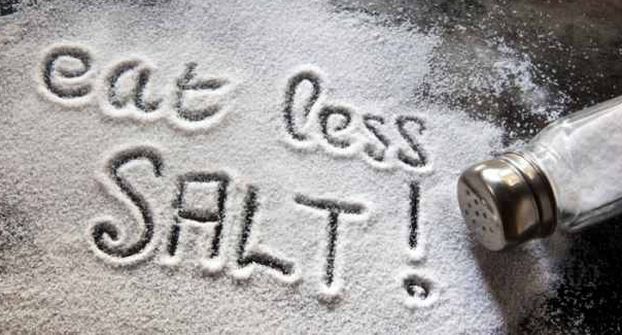 September 29 is World Heart Day 2014
September 29 is World Heart Day 2014
Over the past few decades, the incidence of heart disease has increased tremendously and it seems to have surpassed all the boundaries of uncontrollable risk factors that earlier were associated with increased risk of heart disease. Today, controllable risk factors like diet, physical inactivity and stress largely determine the risk of heart disease. One such diet-related risk factor that is associated with heart disease is salt intake.
On the occasion of World Heart Day 2014, the World Health Organisation (WHO) Sunday recommended salt reduction to prevent and control non-communicable diseases as high salt intake leads to increased blood pressure and is associated with heart disease and stroke. ‘The WHO recommends a daily salt intake of less than five grams per adult or just under a teaspoon. The recommendation is even lower for children, depending on their energy needs,’ Poonam Khetrapal Singh, WHO regional director for South-East Asia said in a message on the occasion of World Heart Day.
High salt intake increases the risk of high blood pressure and is associated with heart disease, stroke and other diseases. According to Singh, about 2.5 million deaths could be prevented every year with mere reduction in global salt intake to the recommended level. It is a simple, cost-effective public health intervention that just needs more awareness and a multi-sectoral approach in which everyone has to contribute.
Governments have a critical role to play and must create awareness and develop policies that enable populations to consume adequate quantities of safe and healthy diet, with low salt content, she added.
The food industry needs to be engaged to reduce salt content and provide healthy food options by reformulating processed foods to reduced salt options, said Singh.
Here are some suggested ways for you to reduce your salt intake.
- Add less salt to food while cooking
- Removing salt dispenser from the dining table
- Limit the availability of high salt ready-to-eat food
- Increase the intake of fruits and vegetables
- To reduce the intake of processed, salty foods, guide children’s taste buds through a diet of mostly unprocessed foods without adding salt
Here are some heart-healthy diet tips for people with heart disease
Cut down the intake of saturated and trans fats
Both saturated and trans fats raise bad cholesterol level (LDL), which can increase risk for heart attack and stroke. So, all foods made from partially hydrogenated oils or deep-fried foods are loaded with bad fats. Apart from that, whole-fat dairy or red meat also contain saturated fats.
It would be best if you replace all bad fats with good heart healthy fats like:
- Omega-3 fatty acid sources like salmon, trout, or herring and flaxseed (alsi), canola oil, and walnuts all contain polyunsaturated fats that are vital for the body.
- Omega-6 fatty acid sources like vegetable oils, soy nuts, different types of seeds all contain healthy fats.
- Monounsaturated fat sources like almonds, cashews, peanuts, pecans and butters made from these nuts, as well as avocadoes. They are all great sources of ‘good’ fat.
Choose foods that lower cholesterol
The best way to lower cholesterol is to choose foods rich in unsaturated fats, fibre and protein. Fibre naturally lowers the level of bad cholesterol in the body. Some of the best cholesterol regulators include fruits, vegetables, fish, beans, nuts and seeds. The best foods for lowering cholesterol are oatmeal, fish, walnuts (and other nuts), olive oil and foods fortified with sterols or stanols —substances found in plants that help block the absorption of cholesterol. Read more about 6 heart-healthy diet tips for people with heart disease
With inputs from IANS
Photo source: Getty images
You may also like to read:
- Suffering from heart disease? Here are foods you should avoid
- Why going vegetarian may be better for your heart
- Add olive oil to your diet for a healthy heart
For more articles on world heart day, visit our world heart day section. Follow us on Facebook andTwitter for all the latest updates! For daily free health tips, sign up for ournewsletter. And to join discussions on health topics of your choice, visit our Questions and Answers section.






0 comments:
Post a Comment